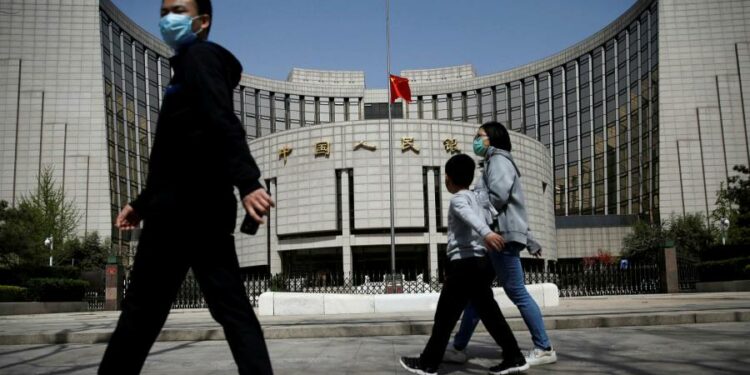The writer is chief economist for Asia Pacific at Natixis and a senior research fellow at think-tank Bruegel
The past few months have been characterised by an increasing divergence in monetary policy between big central banks in the west and those in Asia.
Pushed by higher inflation than expected, the US Federal Reserve has made an abrupt shift towards a rate rise as early as March. The same is true for the Bank of England. The consensus has also shifted towards a rise by the European Central Bank in December.
This rapid monetary tightening contrasts with the increasingly accommodating stance of the People’s Bank of China and the Bank of Japan’s stubborn commitment to its quantitative easing programme to support markets and cap yields through bond buying.
Both central banks have good reasons to stay the course. The Chinese economy is decelerating rapidly, and inflation seems to be under control, at least as far as consumer prices are concerned.
In Japan, inflation is still well below the BoJ’s objective, which justifies the continuation of such lax monetary policy stance. And yet, things are changing rapidly.
To start with, the Fed’s much more aggressive tone, which reflects a sudden realisation of the larger threat of inflation, has led to a bond market sell-off and rapid widening of the gap between short- and long-term interest rates.
This is not only putting upward pressure on European treasury yields but also on Japanese government bonds. The BoJ had to intervene on Thursday to ensure the yield on its 10-year benchmark bond remained within its 0.25 per cent limit. And for China, the spread between its three-year sovereign bond yields and those of the US has kept on narrowing from around 3 percentage points to 0.50 now.
Such a narrow yield differential does not bode well for China to continue to attract portfolio inflows — at least not fixed income, which accounted for 60 per cent of such investment in 2021.
Given the strong renminbi and China’s big trade surplus, one could argue that a reversal of the still strong portfolio inflows cannot hurt the country much. In fact, some renminbi weakening if inflows slow could be handy to boost exports given the expected narrowing of the trade surplus in the course of 2022, as the global economy decelerates.
Still, there are worries in Beijing, as revealed in comments by Chinese policymakers all the way up to Xi Jinping. “If major economies slam on the brakes or take a U-turn in their monetary policies, there would be serious negative spillovers,” the president said last month.
In other words, no financial market — even China — is fully insulated from the Fed’s rapid tightening. Indeed, the dollar’s overriding role as reserve currency is key to understanding how the Fed’s “quantitative tightening” may affect China.
As China is a net creditor overall with more assets than liabilities in dollars, a stronger US currency and higher interest rates should create a positive wealth effect for the country despite a lower value for its holdings of US Treasuries.
However, this is not true for corporations. Big companies with access to the offshore market are heavily indebted in dollars, which means that their cost of funding will rise after the Fed tightens, and all the more so if the dollar appreciates with it.
In addition, Chinese banks have stepped up their lending in a large number of emerging and developing economies, most of which is in dollars. The aftermath of the pandemic is bringing to the surface the unsustainability of many of these countries’ debt and the need for them to be restructured. Such trends are clearly not good news for the Chinese economy, which is already experiencing a cyclical, but also structural, deceleration.
As for Japan, a stubborn defence by the BoJ of its yield control strategy will only weaken the yen further. That may be positive for external competitiveness and might even help push up long-depressed inflation. But there would be an important side-effect: Japanese households’ purchasing power will shrink and wages will have a hard time catching up.
All in all, monetary policy divergence between major central banks is going to be increasingly difficult.
Either eastern central banks will accept weaker currencies, and other related consequences, or they give up on pursuing a divergent path. For China, the problem will lie with some large corporations’ external debt as well as with banks’ exposure to developing countries. For Japan, shrinking household disposable income is bound to dent growth.











